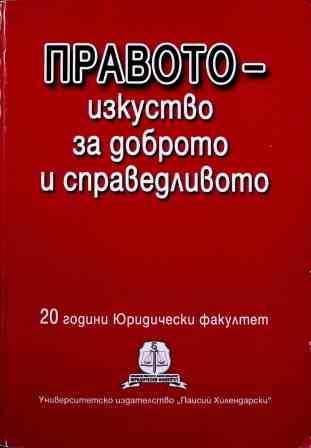Legal Vocabularies, Policy-Writing, and Political Rhetoric as Post-Communist Challenges in Global and Local Context in Southeastern Europe
Legal Vocabularies, Policy-Writing, and Political Rhetoric as Post-Communist Challenges in Global and Local Context in Southeastern Europe
Author(s): Noemi Marin
Subject(s): Language and Literature Studies, Law, Constitution, Jurisprudence, International Law, Theoretical Linguistics, Lexis, Historical Linguistics
Published by: Пловдивски университет »Паисий Хилендарски«
Keywords: legal discourse; legal vocabularies; political rhetoric; cultural; Eastern and Central Europe
Summary/Abstract: When it comes to history, the world of legal discourse in post-1989 transitions within Eastern and Central Europe turns into a unique laboratory of transformations that impact how political and legal systems engage sociocultural adaptations, political rhetoric (discourse) and the notion of audience/publics under novel understandings of national and international history in the area. Such public arena of new European democracies has experienced a wide range of political and legal transitions of official vocabularies, from reminiscent post-World War II or later Soviet – style official rhetoric to nuanced authoritarian and national socialist discourse, into the more fluid democratically aligned linguistic and cultural vocabularies of national identity. It is within this context of political and legal change this essay is situated in order to examine some challenges that legal vocabularies and policymaking process carry in this transformative era. The research question for this essay does not focus on which words or which vocabularies get to be featured within the changes of legal discourse from communist to post-communist era. Rather, the study examines intends some of the critical-cultural perspectives that delineate legitimacy of post-1989 public and official discourse, taking into account how vocabularies carry within word-usage culturally-embedded arguments that inhabit discourse of political, legal, and democratic action.
Book: Правото - изкуство за доброто и справедливото. 20 години Юридически факултет
- Page Range: 505-513
- Page Count: 9
- Publication Year: 2013
- Language: English
- Content File-PDF

